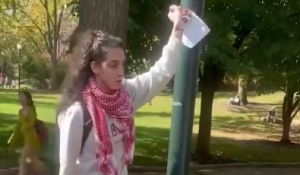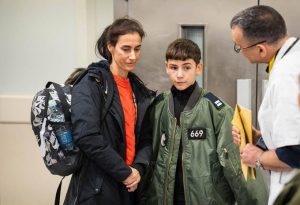Entisar al-Hammadi was just starting a career in modeling when she was arrested two months ago in Yemen’s rebel-held capital Sanaa, where the Huthis are enforcing a morals campaign.
Born to an Ethiopian mother and Yemeni father, the 19-year-old had been pictured online in traditional dress as well as leather and denim jackets, and sometimes she went without a Muslim headscarf.
Also Read | In Imran Khan’s firm message to Pakistanis over COVID, a mention of India
With her high cheekbones and piercing green eyes, Hammadi had several thousand followers on Instagram and Facebook where she posted sessions with local stylists and designers.
The Iran-backed Huthis, who seized the Yemeni capital from the government in 2014 and control much of the north, have not commented on her fate.
But Hammadi’s lawyer Khaled al-Kamal said she was targeted for working in the fashion industry which the Shiite rebels consider a violation of Islamic culture.
Hammadi was snatched on February 20 along with two other models and their friend who was driving them to a photo shoot, the lawyer told AFP.
Also Read | Johnson & Johnson COVID-19 vaccine use should resume but with warning: CDC
“I still don’t know what she is accused of,” he said.
According to Kamal there have been attempts to defame the young woman, with unverified local reports alleging that she was involved in prostitution and drugs.
“The prosecution is trying to make it look like an act of gross indecency, claiming that my client has let out two strands of her hair out or was not wearing a hijab in a public space,” he said.
Yemeni society, although conservative, has traditionally allowed space for individual freedoms and cultivated an appreciation of music and leisure. But all that changed with the rise of the Huthis.
Hammadi’s detention follows a series of incidents in rebel-held areas that illustrate the Huthis’ determination to impose their own moral code on Yemenis who have been enduring years of grinding conflict.
Restaurants where men and women mingle have been shut down and reports say women have been harassed for wearing belts around their abaya robes, with rebels tearing them off, saying the silhouette they create is too “exciting”.
An investigation into Hammadi’s case was finally opened on April 21, her lawyer said, but the charges against her have not been clarified.
The friend who was driving her is being prosecuted for possession of hashish, he said, but the two cases have been separated.
Essentially, he said, the group was targeted because the Huthis “hate art and artists”.
“They are trying to accuse her of any crime because of her work, which the Huthis oppose,” as if to say “‘How dare you be a model in a Muslim country?'”.
Kamal has reached out for support from civil society groups which have launched an online campaign under the hashtag #FreeEntisar.
“According to the Huthi vision, this issue is a moral one because they are an extremist religious group,” said Tawfik al-Hamidi, head of the SAM Organization for Rights and Liberties.
“Entisar’s activity and the field of fashion modelling is new in Yemen, and it is something the group cannot accept,” said the Vienna-based Yemeni human rights activist.
Violence and discrimination against Yemeni women and girls has worsened as a result of the war that has ravaged the country, leaving tens of thousands of people dead and millions pushed to the brink of famine.
Hamidi said the situation of women in Yemen — where Huthis are battling a government backed by a Saudi-led military coalition — is “catastrophic”, with all warring sides contributing to it in one way or another.
But it is worse under the Huthis, who have adopted an Iranian model of the Muslim moral code.
“Arrest, torture, enforced disappearances and sexual violence are particularly prevalent in Sanaa,” he said.
The rebels have targeted women in terms of economic rights, freedom of movement, and exclusion from public sector jobs.
“She is a spirited 19-year-old girl who is full of ambition but the situation is what it is, unfortunately,” Hamidi said of his client.
“Her mother has not stopped crying. Her younger brother is disabled. She was the only provider for the family. It is a painful situation.”






